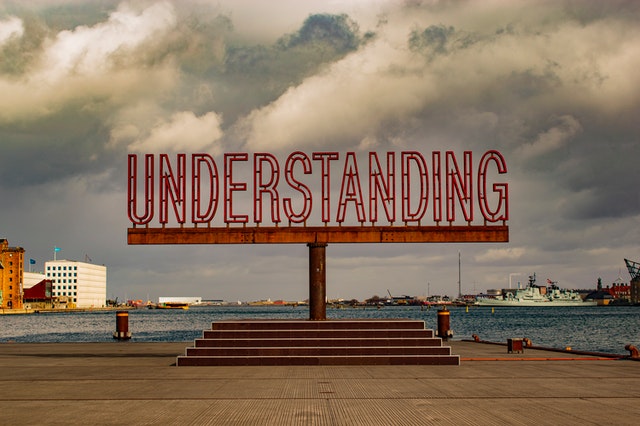
An addiction is a heavily misunderstood brain condition, resulting in compulsive and habitual behaviours. Such behaviours are commonly linked to toxic substances, such as drugs, due to their addictive traits.
The majority of drugs, whether medically prescribed or illicit are addictive to some degree, down to their makeup and influence on the body and brain. Yet, exposure to such substances will not develop into an addiction diagnosis for every user.
Addictions can amount to a multitude of uncontrollable reasons. Those reasons will carry varying levels of effectiveness for each person, deciding whether mere drug use or addiction will be the result of exposure.
As there’s a definite line between both outcomes, understanding drug use and addiction, along with their differences and specific development, effects and associated treatments are important. Both drug use and addiction surround dangerous exposure to addictive drugs. Yet depending on personal responses and vulnerabilities, the extent of damage and control will differ.
If you’re struggling with a drug abuse disorder, we at Action Rehab are here to support and direct you through addiction recovery.
What is addiction?
Medically recognised as a brain condition, addiction is where habitual, compulsive, and uncontrollable changes are displayed through routine-like addictive behaviours. While addictive behaviours can be influenced by experiences, feelings and activities, the most common surrounds drugs, and hazardous substances.
Through ongoing exposure to an addictive stimulus, along with the activation that exposure influences on the internal reward system, a habit of consumption will amount, very difficult to break and deviate from.
Addiction is found where deterring a break, even when consequences are present becomes impossible, as changes to brain structure and internal responses adjust to meet the demands of influential stimuli. Although behaviours come across as voluntary through the addiction cycle, they are involuntary once these changes occur, displayed through physical and psychological characteristics.
The cause of addiction is also unpredictable, which can be influenced by anything from pre-existing susceptibilities through genetics, toxic environments, social pressures, mental health conditions and psychological trauma. Due to such irregular causations, pre-empting the drug addiction cycle can be tough.
As addiction can develop through minimal exposure, understanding drug use and addiction development are very important. Although both display differently and require certain actions, they are very similar when considering exposure to addictive drugs.
Understanding drug use and addiction – the key differences
Both normalised consumption and addiction begin with voluntary drug use. Here’s where drugs are consumed for a certain reason, whether that’s for pain relief, emotional support or for social effect. However, this is the moment where the difference between both drug use and addiction shows, through subsequent steps.
Drug use, also defined as dependence is the normalisation of consistent consumption. Like an addiction, consumption can become regular, yet only physical associations will display. Physical withdrawal symptoms, physical cravings and physical side effects are found through voluntary drug use, making it easier to stop or reduce intake. Slow detoxification can usually help to diminish drug use and dependence.
A drug addiction, again, can follow a similar pace to a dependence, however, both physical and psychological associations will be found. This is where drug exposure becomes complex and influential, as changes to the brain structure and internal reward system will be found.
Those changes influence behaviours, outlooks, choices, and physical actions, commonly difficult to break through the form of a habit. To break an addiction, extensive comprehensive treatment will need to be completed through rehab, focusing on physical and psychological restoration.
The difference between addiction and dependence surfaces through the effects that consumption rates and outcomes have. However, their distinction also shows key concerns around each, along with suitable treatment routes.
Drug use, if uncontrolled, if paired with a vulnerability or if aggravated through stronger substances can result in an addiction. Addiction development isn’t discriminatory, meaning that normalised consumption can tip over to habitual behaviour.
However, the greatest concern does lie on an addiction diagnosis, where consequences through health concerns, reduced quality of life, money problems and relationship issues are all common.
Understanding drug use and addiction, how the voluntary can become involuntary, and the difference between the withdrawal steps of each is very important. Common signs and symptoms of addiction can help to clearly distinguish both.
Recognising and diagnosing addiction
Drug use, while habit-like, will only display through physical cravings and symptoms. Many individuals in fact encounter such symptoms through any degree of consistent drug abuse. However, addiction is complicated, carrying many different signs and symptoms, down to multifaceted changes through dangerous drug exposure.
Recognising and diagnosing addiction is therefore very important, as a misdiagnosed or mistreated behavioural habit can turn life-limiting, especially through aggressive drugs.
Signs and symptoms of drug addiction include:
- Physical and psychological withdrawal symptoms within the break of consumption
- Difficulties reducing or stopping drug exposure
- Noticeable side effects, linked to the drug you’re abusing
- Ongoing consumption, even when faced with consequences
- Mental health symptoms recognised as a dual diagnosis
- Feelings of withdrawal and isolation from everyday life
- Feeling the need to hide drug consumption from others
- Leading a double life, distinguished through drug exposure
- Challenges with maintaining current responsibilities and interests
- Disinterest in life outside of drug exposure
- Doing whatever it takes for that next high
Understanding drug use and addiction are essential to appreciate the severity of consumption. Drug use can turn into the above signs if ignored or denied. Opting for a professional diagnosis will be recommended, be aware of your relationship with drugs
Drug addiction and the brain
One of the key driving forces of the drug addiction cycle is how such substances engage with the brain. Once drugs enter the body, their effects will influence the internal reward system. For those who do unfortunately develop degrees of addiction, the reward system will become accustomed to the drug and its routine presence, increasing the risk of addiction.
Through this process, organic production of happy chemicals will begin to suppress internally, without drug exposure, also increasing the chances of mental health issues and extremely low moments.
Damaging the natural flow of the reward system can place a reliance on drugs, which develops the vicious, unbearable cycle of drug addiction. This is where drug use and addiction rank as very different, as changes to the brain structure, clearly indicate habitual-like behaviours, actions, outlooks, and effects.
Addiction treatment and its role
Unfortunately, there isn’t a cure for addiction, as it is such a complicated condition. Yet there is a range of treatments and therapies which are available to suppress the weight of addiction while working to manage sobriety.
The role of addiction treatment services is to therefore promote safe withdrawal from drugs, while also working to understand and stabilise the brain and its functionality. Through treatments such as detoxification, cognitive behavioural therapy, family therapy, group therapy and exposure therapy, healing the physical and psychological wounds of addiction is possible.
A comprehensive process must be linked to addiction recovery, including active treatment and rehabilitation, along with relapse prevention and ongoing maintenance.
A key difference between drug use and addiction is highlighted here, where a dependence can usually be deterred through slow detoxification, by removing drugs from the cycle.
Being aware of and understanding drug use and addiction is recommended, as both are currently misunderstood and categorised into the same box. It can be possible to consume drugs without developing an addiction. Yet still dangerous and risky, drug use can develop into an addiction, essentially requiring professional intervention.
Whether you’re struggling through drug use or an addiction, we at Action Rehab can guide you in the right direction to source appropriate addiction treatment services. Reach out for more information on suitable, diagnosed-formed recommendations.
Posted on Friday, July 30th, 2021 at 11:30 am in Addiction, Latest News.






 Call Us
Call Us Contact Us
Contact Us